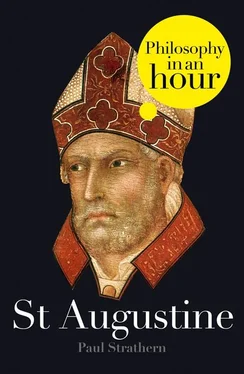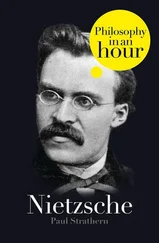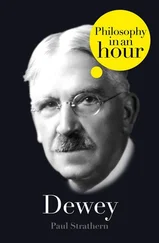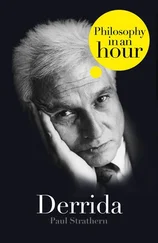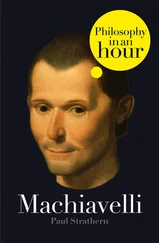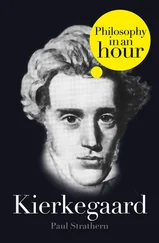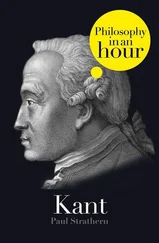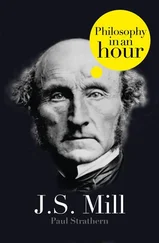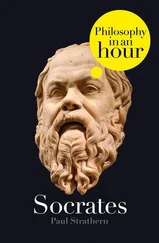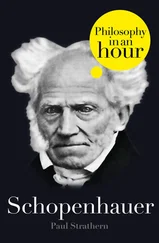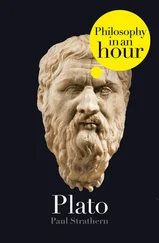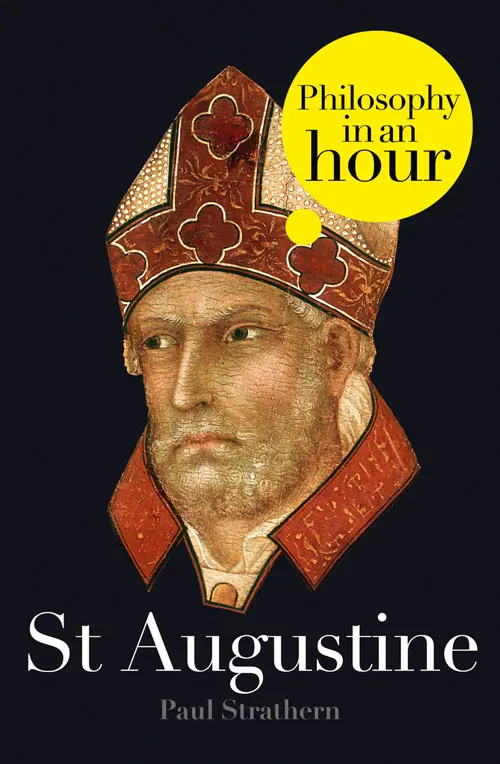
St Augustine
PHILOSOPHY IN AN HOUR
Paul Strathern
Cover
Title Page St Augustine PHILOSOPHY IN AN HOUR Paul Strathern
Introduction
St Augustine’s Life and Works
After St Augustine
Further Information Конец ознакомительного фрагмента. Текст предоставлен ООО «ЛитРес». Прочитайте эту книгу целиком, купив полную легальную версию на ЛитРес. Безопасно оплатить книгу можно банковской картой Visa, MasterCard, Maestro, со счета мобильного телефона, с платежного терминала, в салоне МТС или Связной, через PayPal, WebMoney, Яндекс.Деньги, QIWI Кошелек, бонусными картами или другим удобным Вам способом.
From St Augustine’s Writings
Chronology of Significant Philosophical Dates
Chronology of St Augustine’s Life
Chronology of St Augustine’s Era
Recommended Reading
About the Author
Copyright
About the Publisher
Introduction Contents Cover Title Page St Augustine PHILOSOPHY IN AN HOUR Paul Strathern Introduction St Augustine’s Life and Works After St Augustine Further Information Конец ознакомительного фрагмента. Текст предоставлен ООО «ЛитРес». Прочитайте эту книгу целиком, купив полную легальную версию на ЛитРес. Безопасно оплатить книгу можно банковской картой Visa, MasterCard, Maestro, со счета мобильного телефона, с платежного терминала, в салоне МТС или Связной, через PayPal, WebMoney, Яндекс.Деньги, QIWI Кошелек, бонусными картами или другим удобным Вам способом. From St Augustine’s Writings Chronology of Significant Philosophical Dates Chronology of St Augustine’s Life Chronology of St Augustine’s Era Recommended Reading About the Author Copyright About the Publisher
The golden age of philosophy came to an end with the death of Aristotle in 322 B.C. What had been a matter of coherent argument now largely degenerated into attitude or commentary. Of the former, there were two main attitudes. Times being what they were, neither of these was optimistic.
The Stoic philosophy was developed by Zeno of Citium, who was born in the early third century B.C. in Cyprus. Zeno was a successful capitalist until he lost all his resources in a shipwreck. He was immediately attracted to the Cynics, who believed that material possessions were of no importance whatsoever. Zeno developed this attitude into his own Stoic philosophy, named after the stoa (or pillars) of the arcade in Athens where he taught. Zeno believed in adopting a Stoic attitude to life and claimed that all men are divided into two categories. The first group (Stoics to a man) consist of the wise, who are indifferent to everything except their own wisdom. The rest are fools.
For the Stoics, wisdom meant forswearing the passions and living a life of virtue. This involved self-control, fortitude in the face of adversity, and just behaviour.
Stoic philosophy developed over the centuries and eventually became a great hit in Rome, especially among those disillusioned portions of the upper classes who had to endure the whims of recalcitrant emperors. The tragedian Seneca even tried to teach Stoicism to Nero, but the emperor proved temperamentally unsuited to this philosophy.
In the second century A.D. Stoicism was finally adopted by the emperor Marcus Aurelius, who wrote a series of rather pompous and banal meditations on the subject during his long campaign against the trans-Danubian barbarians.
Other similar philosophical attitudes gave rise to the aforementioned Cynics, and to the Skeptics, who believed they knew nothing but saw no contradiction in teaching this.
But the most important attitude other than Stoicism was that adopted by Epicurus, who was born during mid-fourth century B.C., probably in Samos. In later life Epicurus settled in Athens and founded a community that lived in his garden and followed his philosophy. This was known as Epicureanism and was in many ways the opposite of Stoicism. Where Stoics renounced all pleasure, Epicureans believed in living the good life. But Epicurus himself believed that the good life was an extremely simple life – living on bread and water, with perhaps a bit of cheese on holidays. His aim (and initially that of his philosophy) was to achieve a life devoid of all pain. Sex, drunkenness, ambition of any kind, and generally living the high life resulted in headaches, hangovers, and disappointments. These were all a pain, and their causes were thus best avoided. The Romans, who had no feel for such finer points of philosophy, avidly embraced Epicureanism but insisted on their own idea of the good life. This involved a lot more than bread and water. Epicureanism thus became corrupted, acquiring the self-indulgent associations that it retains to this day.
Almost all other philosophers of this period concentrated on the works of their great predecessors. Their activities consisted largely of commenting, analysing, elaborating, and quibbling. Foremost among these unoriginal critics were followers of Pythagoras and Plato. The greatest of the latter was Plotinus, who developed the religious bent in Platonism and incorporated various mystical features. In the end his philosophy was barely recognisable as Platonism, so it was called Neoplatonism.
The most important intellectual event of the early centuries A.D. was the spread of Christianity. This increasingly stymied any further serious philosophy until the arrival of Augustine.
St Augustine’s Life and Works Contents Cover Title Page St Augustine PHILOSOPHY IN AN HOUR Paul Strathern Introduction St Augustine’s Life and Works After St Augustine Further Information Конец ознакомительного фрагмента. Текст предоставлен ООО «ЛитРес». Прочитайте эту книгу целиком, купив полную легальную версию на ЛитРес. Безопасно оплатить книгу можно банковской картой Visa, MasterCard, Maestro, со счета мобильного телефона, с платежного терминала, в салоне МТС или Связной, через PayPal, WebMoney, Яндекс.Деньги, QIWI Кошелек, бонусными картами или другим удобным Вам способом. From St Augustine’s Writings Chronology of Significant Philosophical Dates Chronology of St Augustine’s Life Chronology of St Augustine’s Era Recommended Reading About the Author Copyright About the Publisher
‘I went to Carthage, where I found myself in the midst of a hissing cauldron of lasciviousness. I ran wild with lust, the abominable things I did: rank depravity, a surfeit of hell’s pleasures. Bodily desire like a bubbling swamp and virile sex welling up within me exuded mists…’ St Augustine was a sex maniac. Or so he would have us believe. His famous Confessions contain page after page in which he castigates himself for being ‘the vilest slave of evil passions’ and indulging in ‘the filth of lewdness, hell’s black river of lust’. But the expectant reader turns the pages with increasing disappointment as he searches for actual examples of ‘this crazed wantonness’. So we don’t know exactly what Augustine was up to in the fleshpots of Carthage. My guess is that it wasn’t much more than the usual student escapades.
Читать дальше
